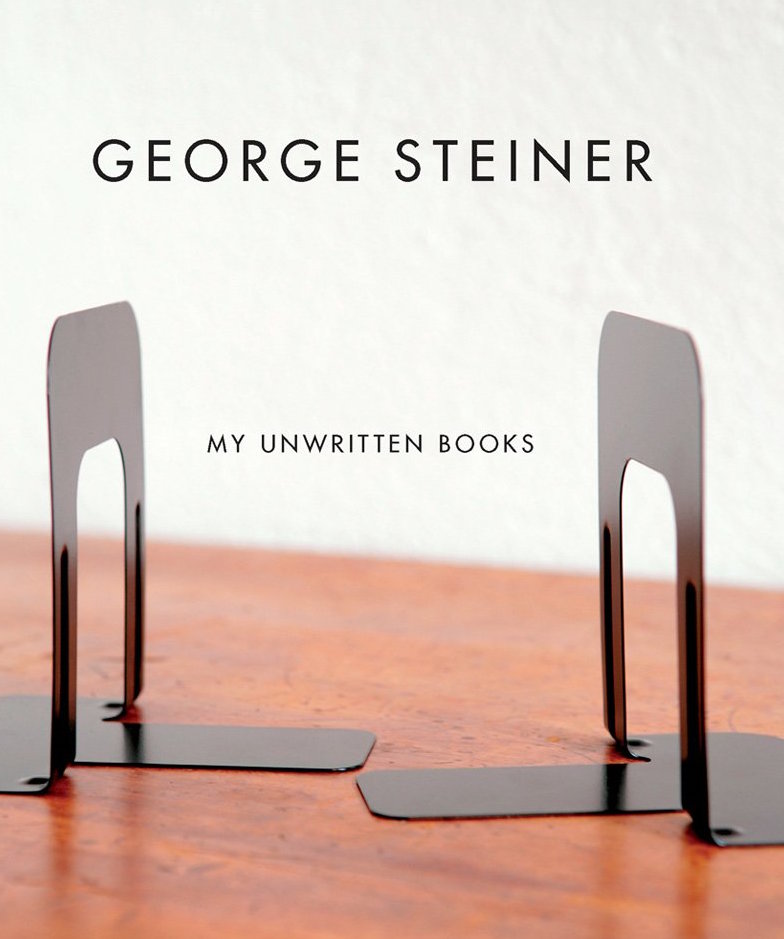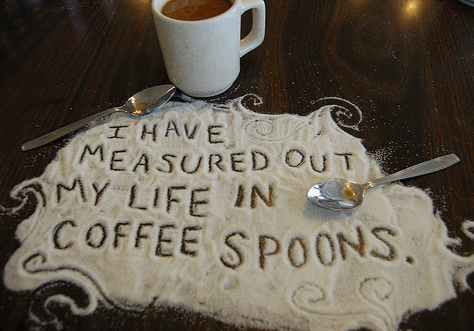
There’s a book I’ve always wanted to write—titled, maybe, The Christ of the Mind, about the deep content of the idea of the savior and its effect on thought. An account of the faith of intellect.
And, poking around for my next project after getting out the Decline of the Novel book, I’ve come to realize—to fully internalize—that I will, in fact, never have the time to write this book, short of the grave. Never have the space and freedom to think my way through it. A strange and powerful insistence of mortality.
To be a writer is to measure out our lives in what we did not write.
That last, lapidary sentence, with its unostentatious echo of “The Love Song of J. Alfred Prufrock,” has set me to asking: is it true? For Jody, it might well be. He is a fine and thoughtful writer who turned sixty last year, and I’m not surprised that he now finds himself reflecting on the inescapable fact that time is now working against him, meaning that there are things he’s always wanted to write that most likely aren’t going to get written.
My mind, by contrast, doesn’t really work that way. I am, and have always been, a journalist, which means both that I write about a lot of different things and that my life and my editors tend to decide which ones I’ll write about. I review for The Wall Street Journal the shows I see each week. I write a column every other week for the Journal and an essay every month for Commentary about art-related subjects, some of which I suggest to Eric Gibson and John Podhoretz, my editors, and some of which they suggest to me. Indeed, the ideas for most of my books and plays have been suggested to me. I don’t have a problem with that: I’m a person of wide-ranging interests who likes to engage with the passing scene, and I’m never happier than when somebody says to me, “Hey, why don’t you write a piece about so-and-so?”
All that said, I’m well aware, and increasingly so, that I won’t be writing forever. This is my favorite couplet from Cardinal Newman’s Dream of Gerontius, one that I’ve not infrequently had occasion to quote in this space: And, ere afresh the ruin on me fall,/Use well the interval. At some unknowable point in the future, my writing days will come to an end, and it’s perfectly possible that I’ll have just enough time to ask myself, “Gosh, how come I never got around to writing about so-and-so?” But will I? Justice Holmes gave a short radio talk on his ninetieth birthday in which he reflected on the effects of extreme old age (he retired ten months later) on those who are accustomed to hard work:The riders in the race do not stop short when they reach the goal. There is a little finishing canter before coming to a standstill. There is time to hear the kind voice of friends and to say to oneself that the work is done. But just as one says that, the answer comes: The race is over, but the work never is done while the power to work remains. The canter that brings you to a standstill need not be only coming to rest. It cannot be while you still live, but to live is to function. That is all there is. And so I end with a line from a Latin poet, who uttered the message more than fifteen hundred years ago, “Death, death, plucks my ear, and says, ‘Live. I am coming.’”
I hope this is what happens to me as the end approaches. I simply can’t imagine not writing about what I’m thinking at any given moment. At the same time, though, it rarely if ever occurs to me to think very far beyond that moment, though I do have another big book—a biography—that I still hope to get around to writing.
And what if the clock runs out before I get another chance to direct? Will I die a disappointed man? Here’s how I answered that question shortly after the opening night of my first stage show, Palm Beach Dramaworks’ 2016 production of Satchmo at the Waldorf:
I still feel that way—but there’s nothing much I can do about it, at least not for the moment. To be sure, I did get to stage Satchmo again two years later, and had a whale of a time doing so. Since then, though, I’ve been increasingly, necessarily, and rightly preoccupied with taking care of Mrs. T. What’s more, I’m just fine with that: she is the center of my life, and every hour I spend at her side is an hour gratifyingly spent.I do think that Satchmo went well, but I know that I still have a long way to go before I can call myself a fully formed director, and that it won’t be until I direct a second show—preferably written by somebody else—that I’ll really start to see what, if anything, I have in me.
As yet nobody’s asked me to do that, and it may well be that no one ever will. We have it on the best authority, after all, that you can’t always get what you want. Nevertheless, I’m already longing to try my hand again at the elusive, seductive art of stage direction, and I’ll be sorely disappointed if it turns out that I never get to do so. Having reluctantly left Satchmo behind in West Palm Beach, I know beyond doubt that once is not enough.

The good news is that because of the nature of my professional life, I’m able to earn a living in a soul-satisfying way while simultaneously taking care of my beloved spouse. Not everybody is lucky enough to be able to do that, and I’m grateful beyond words that I can.
It may well be, then, that I’ve embarked on Justice Holmes’ “finishing canter,” and that I will now spend what is left of my life doing things I already do well instead of trying my hand at new ones. If so, then I will very definitely be using well the interval. Nevertheless, I’m still hoping that a few more surprises await me before death plucks my ear and tells me that the clock has finally run out. I suppose none of us can ever have quite enough sugar when all is said and done.
* * *
“Rouse thee, my fainting soul,” an excerpt from The Dream of Gerontius, Edward Elgar’s 1900 setting of Cardinal Newman’s poem, performed by Peter Pears, Benjamin Britten, the London Symphony Chorus, the Choir of King’s College, Cambridge, and the London Symphony Orchestra:
“Beat the Reaper,” a 1969 comedy sketch by the Firesign Theatre:
